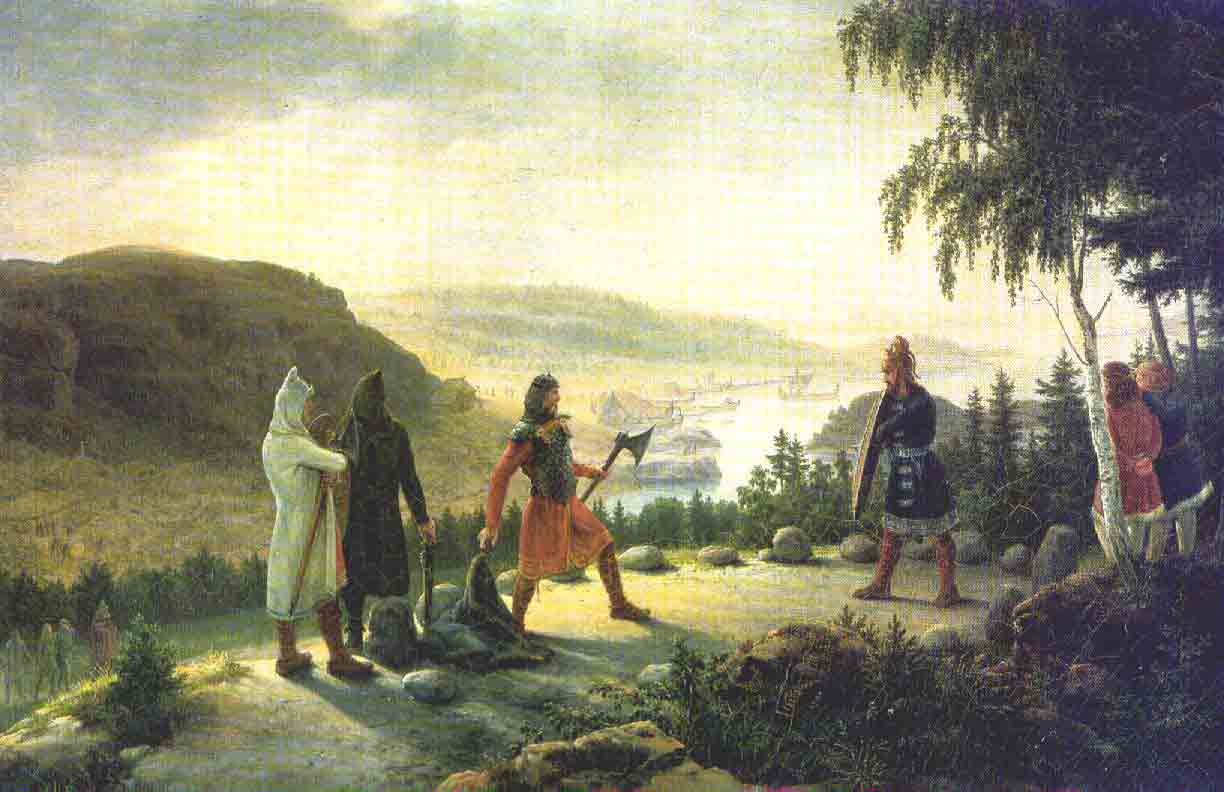If you’re going to get any edition of Beowulf, the ancient Anglo-Saxon epic, get this one. Until now, I got along with the serviceable translation by Michael Alexander — nothing wrong with it. But this translation by renowned Irish poet Seamus Heaney leaps from the page and sings. For the first time, a modern reader can experience the poem with the immediate pleasure that they would get from reading a good-quality contemporary fantasy novel.
Take this sample, chosen almost at random (I could have grabbed something from any page).
Here’s the original:
Nis þæt feor heonon
mīl-gemearces, þæt se mere standeð
ofer þæm hongiað hrinde bearwas;
wudu wyrtum fæst wæter oferhelmað.
Þær mæg nihta gehwæm nīð-wundor sēon,
fyr on flōde; nō þæs frōd leofað
gumena bearna þæt þone grund wite.
Heaney renders it:
A few miles from here
a frost-stiffened wood waits and keeps watch
above a mere; the overhanging bank
is a maze of tree-roots mirrored in its surface.
At night there, something uncanny happens:
the water burns. And the mere bottom
has never been sounded by the sons of men.
The English of a thousand years ago is so extremely different from the modern language that its ancient literature is inaccessible to us, except in translation. Many bored students have been flogged through Beowulf as an onerous duty, but otherwise the poem has not really excited the imagination of modern readers. This wonderful translation will change that. It has already become one of the most surprising bestsellers on the NY Times list. I have to thank Skye Sepp for loaning me a copy. The paperback, published by W.W.Norton, is handsome. Heaney’s detailed preface is illuminating. I also have to thank Steve Muhlberger for drawing my attention to it on his site, Muhlberger’s Early History.

0 Comments.